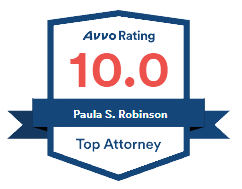Paula Robinson has in-depth substantial knowledge and experience in litigating Pennsylvania workers’ compensation cases. Currently she concentrates on representing all types of injured workers, since that’s where her passion lies. Paula, therefore, applies her understanding of this section of the law to serve her present clients who are totally disabled or injured workers. She works hard to get the optimum compensation for her clients who have suffered injuries while in the course and scope of employment. In this article, some quick tips about workers’ compensation law in Pennsylvania are outlined below.
First, it is advisable to seek legal help as soon as possible after the injury or accident has occurred to facilitate the process of evidence collection and also create a case which based upon the evidence presented, is capable of proceeding to trial before a Pennsylvania Workers’ Compensation Judge and not being dismissed. It should be well noted that all Pennsylvania employers are under legal obligation to provide workers’ compensation insurance. Furthermore, the workers’ compensation insurance provides wage loss and medical coverage for injured workers’ injuries and illnesses.
If, after giving “Notice” to the employer of a work related injury, the case is denied by the workers’ compensation carrier, a Petition for benefits can be filed, which will be assigned to a Workers’ Compensation Judge close in proximity to where the Claimant lives. If the Judge hears the case and decides it in a manner that the worker feels is not fair, then they have the statutory right to file an appeal with the Pennsylvania Workers’ Compensation Appeal Board regarding the same. Some of the advantages of Pennsylvania workers’ compensation is that it is tax free and no fault, dis-similar to personal injury cases.If, as a result of the work injury, the workers’ income is diminished or lost altogether, and the claim is accepted, then the Average Weekly Wage (gross) amount of the injured workers’ income will be calculated from past quarters, and then the weekly compensation rate is calculated off of that amount. There is a rating chart for each year for calculating the weekly compensation rate, depending on the gross amount of earnings. Once this amount is calculated, it will not change, unless it is proven that there is a mistake.
 Additionally, assuming the claim is accepted by the workers’ compensation carrier, all reasonable, necessary, and causally related medical expenses will be paid for the work related injury.
Additionally, assuming the claim is accepted by the workers’ compensation carrier, all reasonable, necessary, and causally related medical expenses will be paid for the work related injury.
To learn more about your particular case, contact Robinson Law LLC for a free initial consultation.









